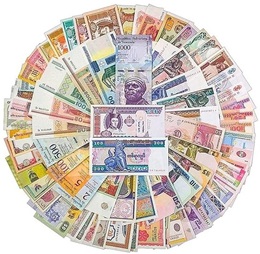On February 8, 2024 on the website of the Dutch tax authorities a position paper of the Knowledge Group participation exemption of the Dutch tax authorities was published (KG:023:2024:1). In this position paper the Knowledge Group answers the question whether a result realized through a forward exchange contract (hereinafter: FEC) must (or may) be capitalized as part of the cost price of the participation. In addition, they answer the question whether this result can be regarded as acquisition costs within the meaning of Article 13, Paragraph 1 of the Dutch corporate income tax Act.
Facts
A taxpayer has an interest in a foreign currency participation and calculates its taxable profit in a currency other than the relevant foreign currency. At some point, the taxpayer decides to expand its interest in the participation and purchases additional shares. The taxpayer enters into a purchase agreement under suspensive conditions that depend on future events beyond its control. The taxpayer incurs a currency exchange risk on the conditional payment obligation which is denominated in a foreign currency. Taxpayers have entered into various FECs. The taxpayer realizes a currency exchange result on these FECs. No appeal has been made to the approval that is included in section 1.7.4 (Purchase of a participation against a purchase price denominated in a foreign currency) of the Decree Participation Exemption of the State Secretary for Finance of March 9, 2020, Dutch State Gazette, 2020, 15230 (hereinafter: the Decree PE).
Questions
Question 1
Should (or may) the currency exchange result that the taxpayer has realized with the FECs - which serve to hedge the currency exchange risk incurred with the conditional payment obligation regarding the conditional right to the delivery of the shares - be capitalized as part of the cost price of the participation?
Question 2
Is the aforementioned currency exchange result be regarded as (negative) costs incurred for the acquisition of a participation within the meaning of Article 13, Paragraph 1 of the Dutch corporate tax Act (hereinafter: DCIT Act)?
Legal context
Article 13, Paragraph 1 DCIT Act
When determining the profit, the benefits from a participation, as well as the costs associated with the acquisition or disposal of that participation (participation exemption), are not taken into account.
Article 13, Paragraph 7 DCIT Act
If the tax inspector has previously determined by means of a decree open to objection, possibly subject to the imposition of further conditions, that the purpose of a legal transaction is to hedge a currency exchange risk incurred with a participation, a benefit from the legal transaction in question will belong to the benefits from the participation.
Section 1.7.4 of the Decree PE of March 9, 2020
If a taxpayer intends to purchase a participation for which the purchase price is denominated in a currency other than the functional currency (ITP: a functional currency is the currency which the taxpayer uses to calculate it taxable income for Dutch corporate income tax purposes), it may be desirable for business economic reasons to fix the currency exchange rate of the purchase price to be paid. If this occurs then, in the period prior to the actual payment of the purchase price, the taxpayer will build up a position in that other currency. This could include holding balances in the other currency or FECs. Since at that moment no participation exists yet, no request within the meaning of Article 13, Paragraph 7 of the DCIT Act can be made with respect to these hedging instruments. In the annual accounts, the currency exchange results realized/incurred in the period prior to the actual purchase and payment of the participation, form part of the cost price of that participation. The Dutch Supreme Court has not yet ruled on the tax treatment of these results.

Approval
Because in this respect I would like to bring taxation in line with the business economic reality, I approve the following. At the taxpayer's request, the currency exchange results resulting from the accrued position in foreign currency regarding the purchase price to be paid in the future, for tax purposes are considered to form component of the cost price of the participation and of the amount sacrificed for that participation.
Condition
To this approval I attach the condition that the request must be made before the taxpayer starts building up the aforementioned currency position.
Answers
Answer 1
No. In this case, the forward currency exchange transactions have independent significance for determining the taxable profit, and the FECs constitute an independent source of (negative) income. The participation exemption does not apply to the currency exchange results that were realized (addition by ITP: or incurred).
Answer 2
No. The currency exchange result realized/incurred through the FECs cannot be regarded as (negative) costs incurred regarding the acquisition of a participation within the meaning of Article 13, Paragraph 1 of the DCIT Act.
Remarks ITP
Since the issuance of the aforementioned Decree PE of March 9, 2020 there were 2 interesting judgments of the Dutch Supreme Court in this respect.
ECLI:NL:HR:2020:1270
In this ruling, the Dutch Supreme Court clarified that a block of shares cannot constitute a participation that is to be regarded as a business asset in case an agreement has already been concluded that obliges the other party to deliver the relevant shares (as referred to in Supreme Court September 23, 2016, ECLI:NL:HR:2016:2124) but where that obligation to deliver is subject to a suspensive condition, and therefore only becomes unconditional if one or more uncertain future events that are beyond the taxpayer's control have occurred.
ECLI:NL:HR:2023:922
In the case in which the Dutch Supreme Court ruled on June 16, 2023, ECLI:NL:HR:2023:922, the taxpayer bought an aircraft against a purchase price that was denominated in a foreign currency and of which a part remained payable until delivery. On the balance sheet date, the aircraft was not yet delivered, and the taxpayer wished to deduct a currency exchange loss that incurred on the payment obligation that had been accrued on the taxpayer’s balance sheet. In its judgment the Dutch Supreme Court considered that in general the purchase price as part of the acquisition cost of the business asset should be allocated to the financial years in which the asset is used in the taxpayer's business by depreciation under Article 3.30 of the Dutch individual income tax Act. In connection therewith, it is not permitted for changes in the purchase price that occur before the delivery as a result of changes in the exchange rate to be taken into account as income or expenses for tax purposes in the year in which those exchange rate changes occur. The Dutch Supreme Court ruled that the taxpayer may not take the increase in the payment obligation into account for the determination of its taxable profit, but that it must capitalize an equal amount in its Dutch corporate income tax return.
Conclusion of the Dutch tax authorities
The Dutch tax authorities a of the opinion that in the underlying case the currency exchange loss that the taxpayer incurs on the FECs cannot be capitalized as part of the cost price of the participation.
Based on the judgments of the Dutch Supreme Court of November 17 1993, ECLI:NL:HR:1993:BH8760, and of April 11, 2003, ECLI:NL:HR:2003:AF4154, in the underlying case the FECSs have independent significance for the determination of the taxable profit. FECs constitute an independent source of (negative) income to which the participation exemption does not apply.
The Dutch tax authorities is of the opinion that in the underlying case there is no reason to deviate from the aforementioned principle. The judgment of the Supreme Court of June 16, 2023 also does not alter the previous opinion. In the underlying case, unlike in the case of the judgment of June 16, 2023, there is a hedging transaction. The other difference is that in the underlying case the asset (a participation) is not an asset that is being depreciated, but a special asset, namely a participation (cf. the Dutch Supreme Court May 24, 2002, ECLI:NL:HR :2002:AD8553).
The full text of the position paper (in the Dutch language), including an extensive legal assessment of the Knowledge Group of the Dutch tax authorities can be found here.
Copyright – internationaltaxplaza.info
Follow International Tax Plaza on Twitter (@IntTaxPlaza)





